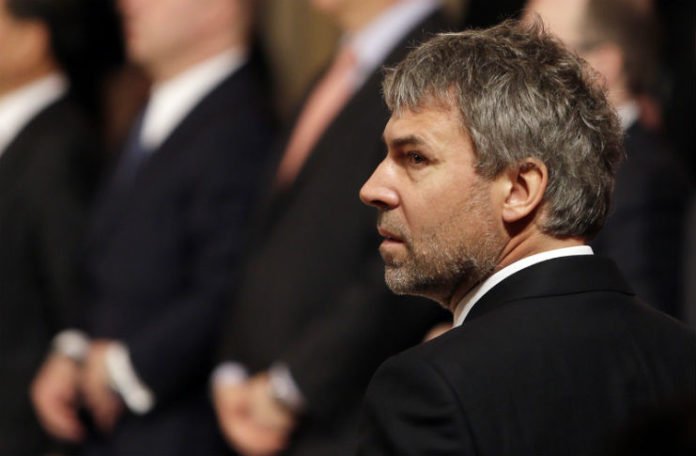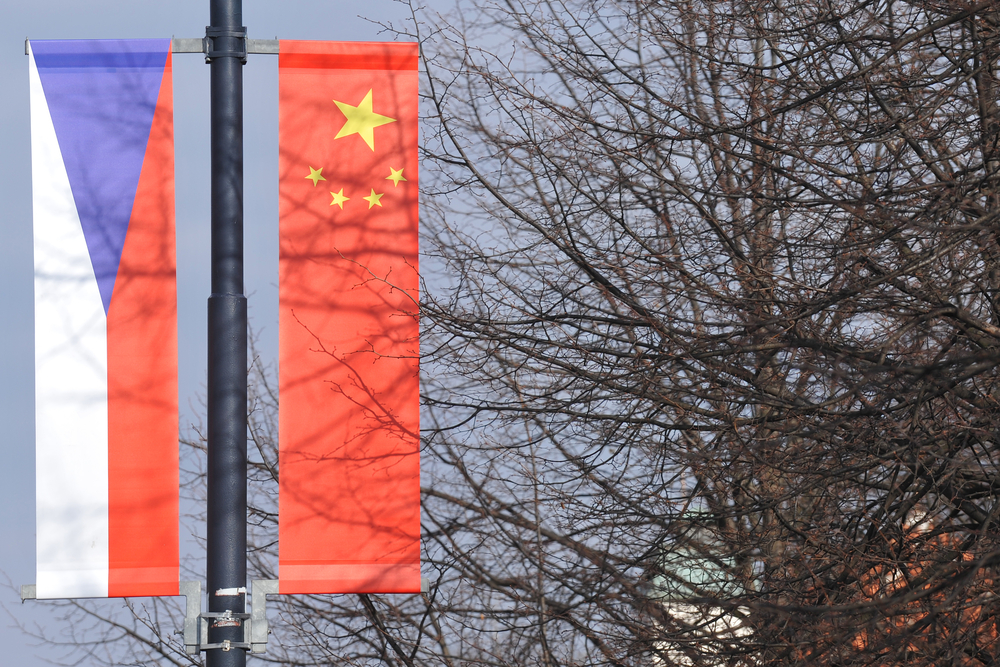Local oligarchs have spent the last decade buying up Czech media outlets in a bid to add political power to their economic clout. However, Czech billionaire Petr Kellner’s purchase of Central European Media Enterprises (CME) may represent a new degree of danger to democracy.
The EU approved the purchase of CME, which operates 30 TV channels across Central Europe, by Kellner’s PPF in October. The bloc’s regulators decided that the acquisition from US conglomerate AT&T, estimated to have cost CZK49bn (about €1.85 billion), “does not give rise to competition concerns”.
Yet many in the region have a different worry: that under the control of Czechia’s richest man, the country’s largest private TV channel TV Nova will be pumping out propaganda for the Chinese Communist Party (CCP).
Kellner is widely suspected of working to increase Chinese influence in Czechia in recent years, in tandem with the populist president, Miloš Zeman. PPF’s financial fortunes are heavily reliant on its consumer credit business in China, and that relies on the goodwill of the Chinese authorities.
That has helped raise suspicion over the reclusive billionaire’s meddling at home. Kellner has long lurked in the shadows of Czech politics. Regarding China, he is accused of running surreptitious schemes to buy favourable coverage of Beijing in the Czech press, monitoring Czech political figures opposed to the CCP, and encouraging high-level links between the two countries.
Little surprise that his new stewardship of CME, which operates television channels viewed by 45 million people in Czechia, Bulgaria, Romania, Slovakia, and Slovenia, provokes such worry.
“It’s a significant concern that Chinese influence will be piped through Kellner into the Czech media space”, said Jakub Macek, head of new media and journalism at Masaryk University in Brno, said. “The CME acquisition clearly opens up the possibility. And the question doesn’t just apply to media. It must also be asked how this deal might affect Czech foreign policy.”
Such worries are no confined to Czechia. U.S. Senator Marco Rubio urged the Senate’s Committee on Foreign Investment in a letter last year to “understand how the Chinese government and Communist party work through proxies like PPF”. The Czech company suggested in response that Rubio was “relying on false information”.
“PPF’s shareholders and its top management have always espoused the principles of freedom, liberal democracy, and a free market”, a PPF press release read. “The fact that we, like thousands of other Western companies, also operate in China, does not in any way imply a contradictory worldview.”

Closely watched
From the Chinese point of view, Kellner’s purchase of CME looks to be a fallback option. The media group was previously understood to be a target for China’s mysterious CEFC corporation, which in 2015 launched a Chinese charm offensive intended to win Czech hearts and minds.
Powered by boasts of a €1 billion investment war chest, at the personal invitation of President Zeman the company embarked on a shopping spree that included banks, travel companies, breweries and a bailout of the faltering Slavia Prague football giant. Media assets were also high on the list of assets to be bought. A sizable stake in Empresa Media, a broadcaster and publisher close to Zeman, was soon snapped up.
Media is a vital tool in the model Beijing employs to try to increase its political influence across Central and Eastern Europe, Ivana Karásková, a China Research Fellow at Prague’s Association for International Affairs (AMO), said. “The aim is to influence how Chinese affairs are narrated to the local audience, to ensure the CCP is portrayed in a positive light and to create a friendly environment for Chinese strategic goals”, she told the International Press Institute (IPI).
AMO found in research conducted in 2018 that coverage of China by Empresa’s main outlets – TV Barrandov and the weekly Tyden magazine – had become “exclusively positive” following the acquisition. “The message is clear”, according to the researchers: “Chinese ownership equals zero negative comments.”
Little wonder that critics worry that TV Nova will head in the same direction. However, the effect of Kellner’s acquisition may not be immediately obvious. Karásková said she suspects that the channel “may be more cautious in how its coverage of China develops as it’s going to be closely watched”.
After years of controversy, Czechia is now on high alert regarding Chinese efforts to expand its influence. Zeman’s push for large investments from the east has all but collapsed, dogged by Beijing’s sudden and secretive dismantling of CEFC in 2018, and the evaporation of many of the erstwhile company’s deals. In place of the promised avalanche of cash, scandals and spats have flowed steadily. Relations reached a nadir in August, when a visit to Taiwan by the head of the Czech Senate – the upper house of parliament – earned threats from Beijing.
The deterioration of relations reflects Beijing’s failure to get a grip on local media, with the vast majority of Czechia’s mainstream media highly suspicious of China. AMO’s research found that by 2018 just 10 percent of Czech media coverage of China was positive; 50 percent was “clearly negative”. Journalists have leapt with enthusiasm to uncover schemes promoting Chinese interests to the media and in academia. Czech public opinion on China is now among the lowest in the EU.
Notably, perhaps the least restrained has been the Czech Security Information Service (BIS), which has issued increasingly urgent warnings concerning Chinese intelligence operations over recent years. In November, the security service again sought to highlight efforts by China to win media influence. In its annual report for 2019, BIS cautioned that Chinese actors continue to try to mould public opinion by spreading Chinese propaganda through Czech media.
Limited options
In the face of this widespread resistance, China’s options to raise its influence via direct means look limited. Beijing doesn’t appear to put great store in spreading disinformation via small “alternative” websites, an operating model that Moscow employs widely in the Czech Republic according to analysts. Instead, China’s strategy relies on capturing mainstream media.
That reflects differing specific goals, according to BIS. “Russia aims for the destabilization and breakup of its enemies”, the security service wrote, “whereas China aims to create a Sinocentric global community, where all the other nations approve the legitimacy of Chinese interests and respect.”
But increasing Chinese control of the media market directly now looks a tricky task. On the one hand, the oligarchization of the market means there are few targets likely to crop up, even allowing for the economic difficulties being driven by the COVID-19 pandemic.
Macek said that due to the ownership profile in the sector, he doesn’t expect any major mainstream media assets to come up for grabs in the near term. Even then, “if the pandemic does provoke any sales then other local oligarchs would likely step in quickly.”
Another barrier on the horizon is the Czech government’s plan to start screening foreign investments into strategic sectors, including media. Following the EU’s lead, Prague is expected to have a new act in place in the coming weeks.
According to Ota Šimák, one of the authors of the bill now in parliament, the government has realized that there are some foreign actors on the media market who are not merely pursuing economic profit but who also have other, political goals in mind.
“The screening legislation will make any acquisitions of media in the Czech Republic much more difficult for Chinese investors”, Karásková predicted.
“I’m not sure there’s much more space for China to extend its influence on Czech mainstream media”, Macek summed up.
Turning off the tap
However, analysts worry that China may have found an indirect route to extinguishing criticism in the media. Earlier this year, Citic, the state fund that took over CEFC’s Czech assets, bought a majority stake in Medea, the largest Czech media agency, which places over CZK 3 billion (about €115 million) worth of advertising with media outlets annually.
The deal therefore gives Beijing significant potential leverage, and the warnings over the deal were swift to arrive. “We can expect strong pressure on the way in which the Czech media will report on communist China”, the HlídacíPes (Watchdog) portal wrote.
Referring to unnamed sources, HlídacíPes claims that Jaroslav Tvrdík, a Citic director who also happens to be an advisor to Zeman, is now busy dividing the country’s media into those friendly to China – and therefore for whom the advertising dollars will continue to flow freely and easily – and the rest, who are likely to find conditions more difficult.
“This could be very tricky for Czech media. There’s huge potential power over the financial health of media outlets and the danger is it could lead to silencing anti-China topics”, Macek said. “Some outlets were already unhappy with Medea’s influence on the market before this takeover.”
- Click here to read more from IPI’s new reporting series Media Freedom in Europe in the Shadow of Covid

